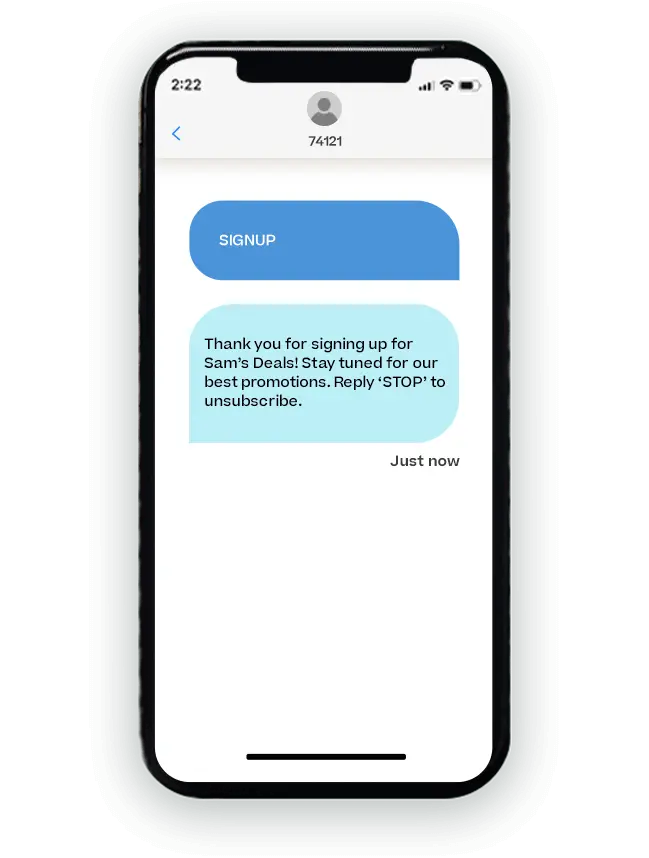Your phone chimes with a new message, but when you check the sender, it’s not a person or a standard phone number. It’s a short, 4-digit code: 2512. If you’re wondering whether this message is legitimate, a marketing ploy, or a potential scam, you’re right to be cautious.
A 2512 text message can be particularly confusing because, unlike some short codes that are tied to a single, well-known company, this one can have a few different origins. This guide will explain the most likely senders and, most importantly, how to determine if the message you received is safe.
What Is an SMS Short Code?
First, a quick refresher. A short code is a 4-, 5-, or 6-digit number that businesses in the United States use to send text messages to a large number of people at once. They are the standard for sending everything from promotional offers and shipping notifications to critical two-factor authentication (2FA) codes.

The Likely Sender Behind the 2512 Text Message
While some short codes are used by many different businesses, there is one major company officially associated with this number.
The T-Mobile Connection
According to official documentation from T-Mobile, the 2512 short code is one of the numbers the company uses for its campaigns. This means if you are a T-Mobile customer, you might receive a 2512 text message related to:
- Promotional offers or deals on new devices.
- Informational alerts about your account or network services.
- Marketing messages about T-Mobile’s products.
The Possibility of Other Services
While T-Mobile is a known user, it’s also possible that 2512 is used as a “shared” short code. This means a third-party messaging provider may lease the number to multiple, often smaller, companies. In this case, a 2512 text message could also be a login verification code from an app, an online store, or another service you use.
How to Interpret the Message You Received
The context of the message is the most important clue to its legitimacy.
Was it a Marketing Offer?
If the text is promoting a product or service, especially one related to T-Mobile, it may be a legitimate marketing message. If you are not interested, you can safely opt out.
Was it a Verification Code?
If the 2512 text message contains a numeric code (e.g., “Your verification code is 123456”), the first thing you should do is ask yourself: “Did I just try to log in to something?”
- If you did, the code is likely the 2FA code you need to finish logging in. It’s safe to use.
- If you did not, the message is a major red flag that requires immediate caution.
The Golden Rule for Handling an Unexpected 2512 Text Message
If you receive a verification code you did not request, it usually means one of two things: either someone entered your phone number by mistake, or a scammer who has your password is trying to break into one of your accounts.
To stay safe, follow these rules without exception:
- Never, Ever Share the Code: No legitimate company—not T-Mobile, not your bank, not any app—will ever call or text you to ask for a verification code they sent. The code is for your eyes only. Anyone who asks for it is a scammer, period.
- Do Not Click Links: If the message seems suspicious or contains a link, do not click it. This could be a phishing attempt to steal your information.
- Proactively Secure Your Accounts: An unsolicited code is a warning sign. Take it as a prompt to go directly to your important online accounts (email, banking, social media) and change your passwords to be stronger and more secure.
How to Stop Unwanted Messages
If you are receiving unwanted marketing from a 2512 text message, you have a simple, legally-mandated way to stop it.
- Reply “STOP”: Texting the word STOP back to the short code will signal to the sender that you wish to opt out of future messages from that campaign. You should receive a confirmation message.
- Block the Number: If unwanted messages persist, you can always use your phone’s built-in feature to block the short code entirely.
In conclusion, while a 2512 text message is often a legitimate communication from T-Mobile or another service, its context is everything. By treating unsolicited messages with suspicion and remembering to never share your verification codes, you can easily protect yourself from potential scams.


